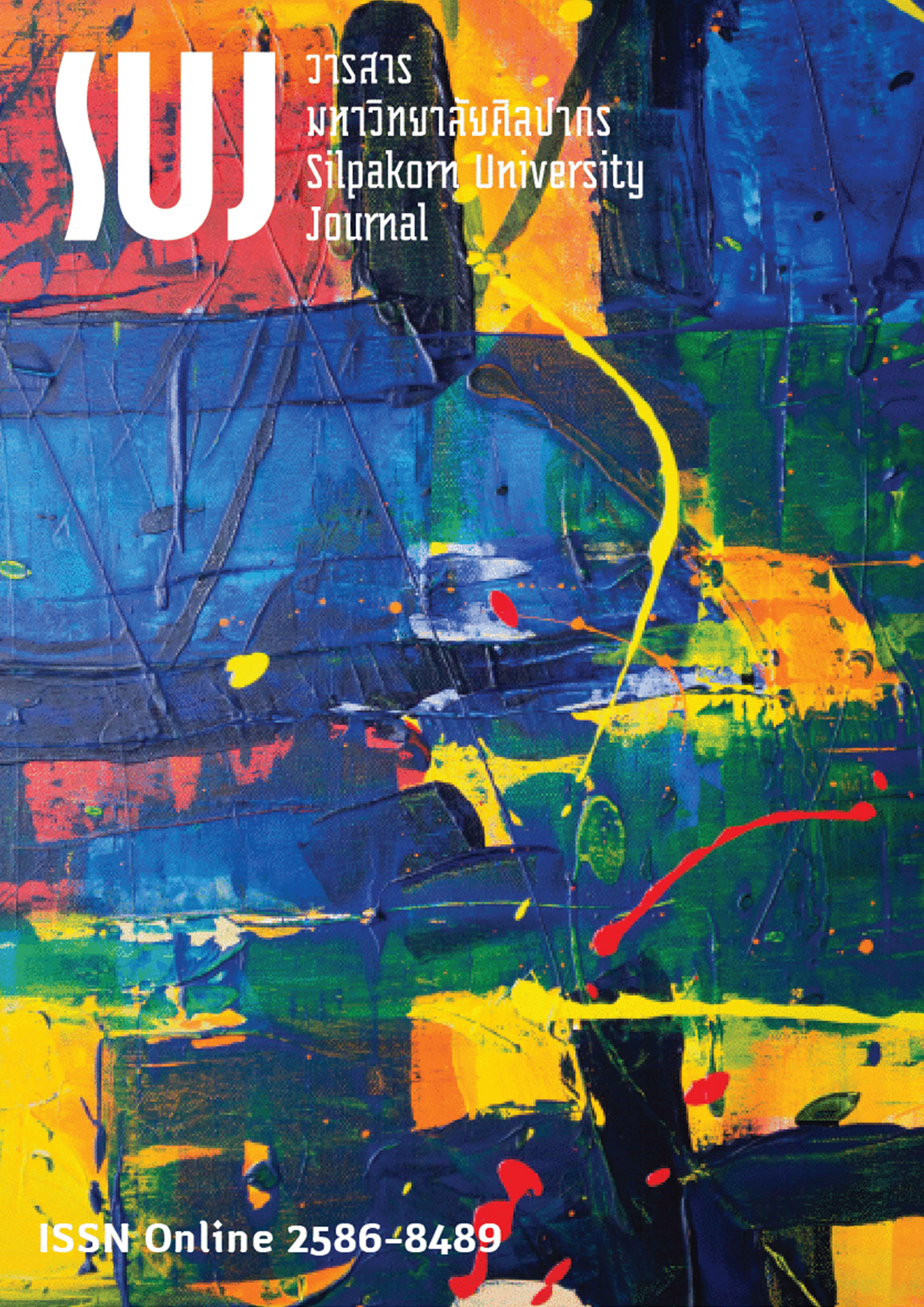นวัตกรรมการพัฒนาตัวแบบการนำนโยบายการกระจายอำนาจสู่การปฏิบัติ เพื่อส่งเสริมความเป็นอิสระในการบริหารสถานศึกษาขั้นพื้นฐาน (Innovation of a model development for implementing the decentralization policy to promote independent administration in basic education schools)
Main Article Content
Abstract
การวิจัยครั้งนี้มีวัตถุประสงค์เพื่อ 1) ศึกษากรอบแนวคิดนวัตกรรมการพัฒนาตัวแบบการนำนโยบายการกระจายอำนาจสู่การปฏิบัติ 2) พัฒนาตัวแบบการกระจายอำนาจสู่การปฏิบัติ 3) ตรวจสอบตัวแบบการนำนโยบายการกระจายอำนาจสู่การปฏิบัติ ทั้งนี้เพื่อส่งเสริมความเป็นอิสระในการบริหารสถานศึกษาขั้นพื้นฐาน โดยเป็นการวิจัยแบบผสานวิธีพหุระยะ กลุ่มตัวอย่างในการวิจัย คือ ผู้อำนวยการสถานศึกษา 320 คน โดยการสุ่มตัวอย่างแบบหลายขั้นตอน เครื่องมือที่ใช้เป็นแบบสัมภาษณ์ และแบบสอบถามที่ผู้วิจัยสร้างขึ้น ได้ค่าความเชื่อมั่นทั้งฉบับ 0.96 สถิติสำหรับการวิจัยนี้ ได้แก่ ค่าเฉลี่ย ส่วนเบี่ยงเบนมาตรฐาน การวิเคราะห์เนื้อหา และการวิเคราะห์โมเดลสมการเชิงโครงสร้าง ผลการวิจัย พบว่า 1) ปัจจัยการนำนโยบายการกระจายอำนาจสู่การปฏิบัติเพื่อส่งเสริมความเป็นอิสระในการบริหารสถานศึกษาขั้นพื้นฐาน ประกอบด้วย ความสัมพันธ์ระหว่างองค์กร การสนับสนุนทรัพยากรองค์การ การสื่อสารและรณรงค์ การบังคับใช้กฎหมาย สมรรถนะองค์การ เงื่อนไขทางสภาพแวดล้อม การส่งเสริมการบริหารจัดการสถานศึกษา ทัศนคติของผู้นำ และผลสำเร็จของนโยบาย 2) ตัวแบบการกระจายอำนาจสู่การปฏิบัติเพื่อส่งเสริมความเป็นอิสระในสถานศึกษาขั้นพื้นฐานมีความเหมาะสม 3) ผลตรวจสอบตัวแบบ พบว่า ตัวแบบการนำนโยบายการกระจายอำนาจสู่การปฏิบัติเพื่อส่งเสริมความเป็นอิสระในการบริหารสถานศึกษาขั้นพื้นฐาน
มีความสอดคล้องกับข้อมูลเชิงประจักษ์ (X2/df = 0.99, GFI = 1.00, AGFI = 0.97 และ RMSEA = 0.00)
The purposes of this research are: 1) to study conceptual frameworks on the implementation of the decentralization policy; 2) to develop a model for implementing the decentralization policy; and 3) to examine a model for implementing the decentralization policy to promote independent administration in basic education schools. This research was conducted through a multi-phase mixed method. A sample of 320 directors of basic education schools was recruited randomly. The instrument was a questionnaire created by the researcher with the reliability level of 0.96. Statistical methods used for this research were mean, standard deviation, content analysis, and structural equation modeling analysis (SEM). The results of the research showed that 1) the factors for implementing decentralization policy to promote independent administration in basic education schools consisted of relationship between organizations, organizational resources support, communication and campaign, law enforcement, organizational competencies, environment conditions, promotion of school management, leader’s attitudes, and the success of policy; 2) the model of the implementation of the decentralization policy to promote independent administration in basic education schools was suitable; 3) the results of the model examination revealed that the model was consistent with the empirical data (X2/df = 0.99, GFI = 1.00, AGFI = 0.97 and RMSEA = 0.00).
Downloads
Article Details

This work is licensed under a Creative Commons Attribution-NonCommercial-NoDerivatives 4.0 International License.
References
Brown, T., & Wyatt, J. (2010). Design Thinking for Social Innovation. Development Outreach, 12(1): 29-43.
Cheema, G. S., & Rondinelli, D. A. (1983). Decentralization and Development: Policy Implementation in Developing Countries. Thousand Oaks, California: SAGE Publications.
Independent Committee for Education Reform. (2018). Education Reform Country Plan (แผนการปฏิรูปประเทศด้านการศึกษา). Bangkok: Office of the Education Council.
Kamrisu, Ruangchai, Keawmanee, Dhiwakorn, Khorchurklang, Sukij, & Siripornpibul Taweesake. (2013). Effectiveness of Policy of Decentralization of Thailand: A Case Study of the Sub-district Administrative Organizations in Nakhon Phanom. (ประสิทธิผลของนโยบายกระจายอำนาจสู่ท้องถิ่นศึกษาเฉพาะกรณีองค์การบริหารส่วนตำบลในเขต จังหวัดนครพนม) The Golden Teak : Humanity and Social Science Journal, 19(2): 79-92.
Kangkarn, Pitukpong. (2022). Factors for Strengthening the Decentralization and the People’s Politics of the Sub-District Municipality in Chaiyaphum Province (ปัจจัยการเสริมสร้างความเข้มแข็งในการกระจายอำนาจกับการเมืองภาคประชาชนของเทศบาลตำบล ในจังหวัดชัยภูมิ). The Journal of Research and Academics, 5(3): 63-74.
Office of the Education Council. (2017). National Education Plan 2017-2036 (แผนการศึกษาแห่งชาติ พ.ศ. 2560 - 2579). Bangkok: Prigwhan Graphic Co., Ltd.
Pressman, J. L., & Wildavsky, A. (1984). Implementation (3rd ed.). Berkeley: California Press.
Quade, E. S. (1982). Analysis for Public Decision (2nd ed.). New York: Elsevier (North Holland Publishing Co.)
Srisumethitano, Phramaha Mahatthapong. (2013). Sangha Educational Policy Implementation: An Analysis of the Operations Carried out by Mahachulalongkornrajavidyalaya University (การนำนโยบายการศึกษาของสงฆ์ไปปฏิบัติ : วิเคราะห์การดำเนินการของมหาวิทยาลัยมหาจุฬาลงกรณราชวิทยาลัย). Doctoral dissertation, Sripatum University, Bangkok, Thailand.
Thamrongthanyawong, Sombat. (2017). Public Policy: Concepts, Analysis and Processes (นโยบายสาธารณะ : แนวคิด การวิเคราะห์ และกระบวนการ)(29th ed.). Bangkok: Sematham Publishing.
Van Horn, C. E., & Van Meter, D. S. (1976). Public Policy Making in a Federal System. California: SAGE Publications.
Wichitputchraporn, Wisut. (2018). Implementation of Policy, Concepts, Processes in Educational Organizations (การนำนโยบายสู่การปฏิบัติแนวความคิด กระบวนการในองค์การทางการศึกษา). Bangkok: Vista Interprint.


